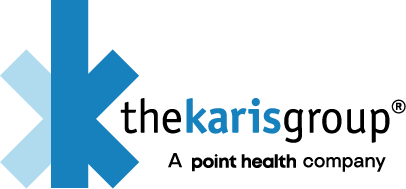I’ve taken a lot of Uber rides. Over a thousand if I had to guess. Punch in your destination and Uber provides an estimate on the cost. As I type this, the predicted cost to take an Uber from my office to the house is $11.33.
Is that the exact amount I’m going to pay?
Well... maybe.
What if there’s an accident that we have to go around? What if there’s traffic? Or - fingers crossed - what if we hit every green light?
When I tap the question mark by the price, it pulls up a notification: “The amount presented may be adjusted up or down at the end of the trip if the actual length, duration, or route changes.”
The legalese is not designed to give Uber an excuse to raise the rates. They’re just being honest. We think it’s going to cost this much - but if it’s more or less, we’ll adjust the price accordingly.
It’s a simple model. And it works.
What does this have to do with healthcare? Well, starting January of 2021, hospitals will have to do the same thing.
This change has not been easy. In fact, the American Hospital Association (the largest hospital lobbying group) has filed suit to stop the law from going into effect. They’re giving the normal excuses. It’s too complex to estimate medical care. What if there’s a complication? What if something goes wrong?
Well, it doesn’t actually happen that often. According to CMS data, fewer than 1 in 6 scheduled surgeries has any complications, minor or otherwise.
It would be like Uber saying they can’t estimate the fare because one out of six times, the driver has to change the route. Of course, they can still estimate the fare! We understand that the cost changes if the destination changes, and we understand that complications can affect the cost of the medical procedure.
So why are hospitals fighting the standard practice in nearly all other industries: disclosing upfront the cost of their services?
The short answer is that listing prices creates competition. Put another way: hospitals can charge more when healthcare consumers don’t know what they’re going to pay.
So insurance companies love the new legislation, right? Not exactly. They can benefit from confusion around pricing, as well. As price transparency creates competition, more employers will choose to self-insure, and more individuals will forgo insurance entirely.
As I look past 2021, I see price transparency becoming the new norm, and with it, the same kind of revolution that ride-share companies brought to the taxi industry.
Your family doctor tells you that you need a knee replacement, so you open an app, schedule the procedure, and pay over the phone. The day is coming probably sooner than we think.
Matt Dale, VP of Strategic Initiatives, has a passion for providing outstanding service and views every interaction as an opportunity to deliver positive outcomes. We are grateful for his expert leadership on healthcare cost-containment to lead The Karis Group's strategic initiatives.
To learn more about The Karis Group and our Karis Cost Containment Services, you can visit our What We Do page or Contact Us to schedule an intro call.





